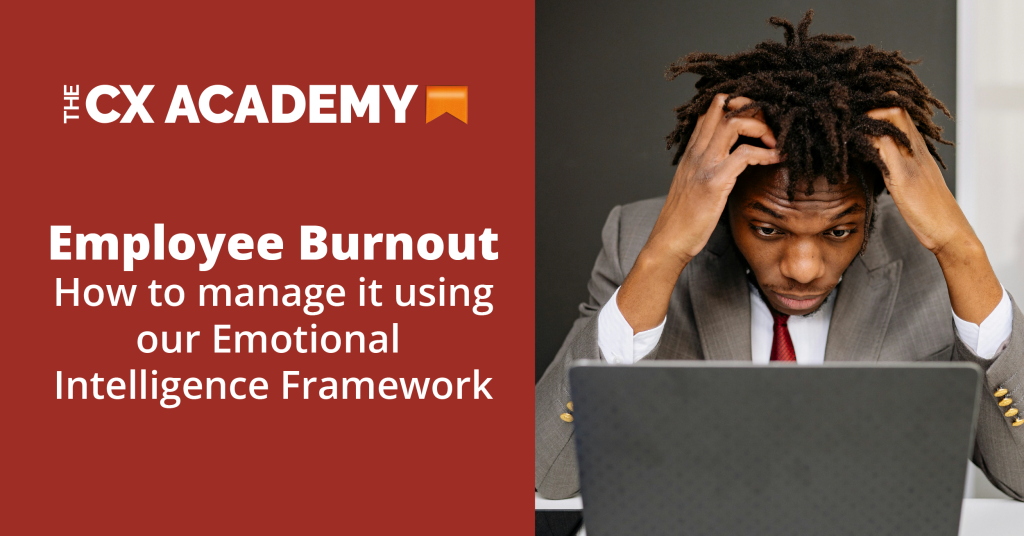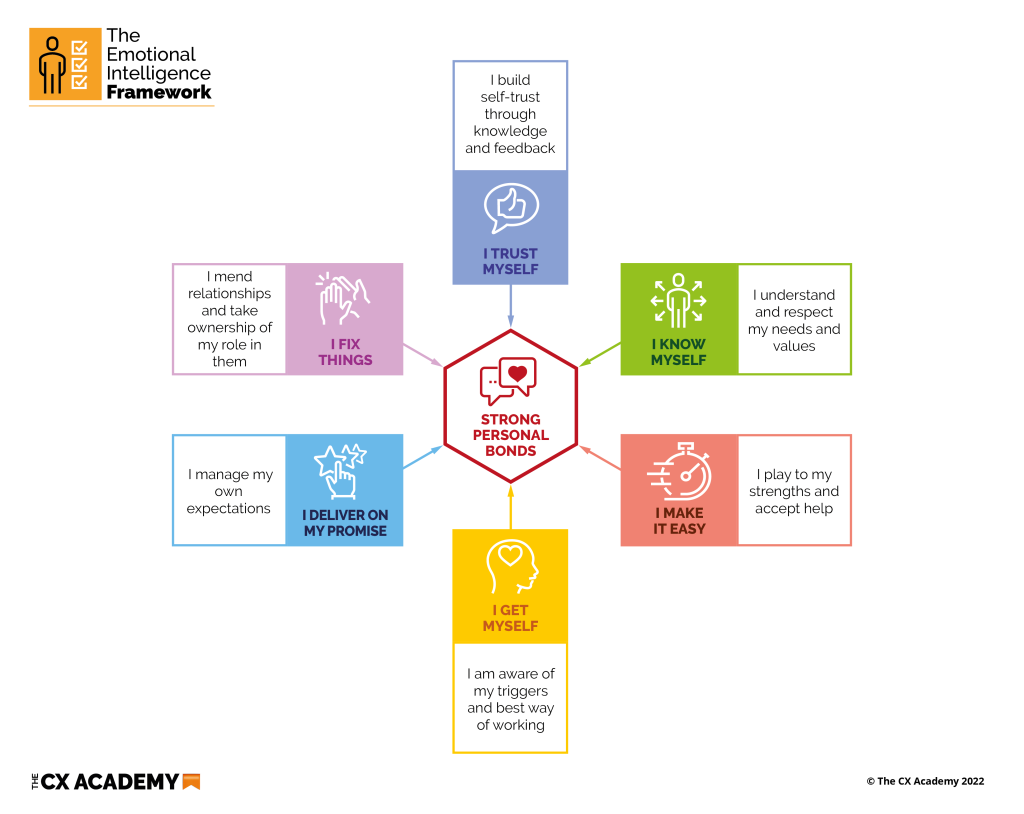
In our latest blog Employee Trends 2024 we mentioned that employee engagement is going down and emphasis on mental health and well-being will be incredibly important.
One of the factors causing employee burnout is a lack of balance in workloads. This includes the type of work they are doing and whether it is too high a workload or not enough engaging work to satisfy them.
What is Employee Burnout?
As the World Health Organisation (WHO) describes it (and acknowledges it as a serious condition), “Burn-out is a syndrome conceptualised as resulting from chronic workplace stress that has not been successfully managed.”
According to WHO, it is characterised by three dimensions:
- feelings of energy depletion or exhaustion;
- increased mental distance from one’s job, or feelings of negativism or cynicism related to one’s job; and
- reduced professional efficacy.
All of the above factors impact the employee’s physical and mental health greatly and as a result, they will impact your organisation very negatively too.
Masterclass: Employee Burnouts and Blow-ups
In preparation for one of our past Masterclasses, we created an Emotional Intelligence Framework by adapting our CX Academy Framework. We realised that it was a great solution for managing and improving your mental health and EQ at work.
Below, in an excerpt from the masterclass, Brian breaks down each factor for you:

As Brian explains in an excerpt from the Masterclass:
I Trust Myself
The first one is “I trust myself”, I build self-trust through knowledge and feedback. And what this is about is essentially confidence. Am I confident enough to do the job I’ve been asked to do? Because all these factors are about auditing yourself. Where is your confidence level in the work you’ve been given, where are the gaps?
And one thing when we were chatting about this as a group, is that this is where the opportunity for getting feedback and being open to feedback is.
Psychologists use a tool called the Johari window, and it’s broken into four pieces:
- Things I know about myself,
- Things that other people know about me, that I know,
- Things that other people know about me that I don’t know.
- Things nobody knows.
And it’s that space, “Things that I don’t know about myself that other people know”, is where you’ve got to lean into. What am I good at that I don’t know, I’m good, what do I need to work on?
And having the maturity to go, okay, I’ve got to build confidence. I’ve got to build my abilities. Where are my ability gaps? You need neutral, independent mirrors throughout your career that can reflect who you truly are. And these are the pieces you may not know.
I Know Myself
So “I Know Myself”, is the key one of the six factors in the Emotional Intelligence Framework. I know myself, and I understand and respect my needs and values.
And this is about your values and what they are. So maybe some of you know what your values are and can verbalize them. But if you don’t, what most career coaches will do with you, is they’ll present you with about a hundred types of words like, attention to detail, assertiveness, integrity, you know, and you whittle those down to about 5 or 6 words through your gut feeling and they become your value bank and your North star.
If you know your values, you can look at a job description or a job role and you can go, my values are in that or my values are not in that. So it helps you make decisions.
It’s never black and white. So in other words, if I’m working for a boss and I know that I have to, I need money to pay the bills, you know, so I’m going to be balancing things.
Julian:
How do you say to yourself, I actually can’t do this anymore?
Brian:
The body tells you. There’s a whole school of thought about, you know, how the body is the messenger of the intuitions that are going on. So what will come through is if you’re that one person that’s going to keep going, keep going. It’s your body that starts telling you.
So listen to your body and try and get there earlier. Because burnout happens when people do not listen to their bodies, they keep going and keep pushing through. But if your body is telling you something, particularly during your working hours, you have to listen to that.
Because ‘Know Myself’ is also ‘Know my spirit’, ‘Know my mind’ and ‘Know my body’ Those three work together.
I Make It Easy
This is what Julian was saying about playing to your strengths. And there was extensive research again by Gallup where they looked at things like strength finders. They have apps which allow you to identify your strengths if you don’t know what your strengths are.
Julian:
People who have made hugely successful careers leaned into what came naturally to them. And Brian, a part of this, making it easy for yourself is accepting things you can’t change, right?
Brian:
Yeah. That’s the stoicism piece. I’m sure most people know what it is, but it started with Seneca, who is a Greek, sort of philosopher, and Marcus Aurelius was an advocate.
And it’s about doing good things for other people. It makes you happy. That’s one of the fundamentals. The other fundamental of it is, don’t try and change things you really can’t change and have no control over.
So they use this analogy about this dog that’s being dragged along behind the car with a collar and a lead, and there are two ways the dog can do this. The dog can either just go, ‘I am not going any further!’, and it just gets dragged along, or else the dog can jog beside the car, happy as anything.
You know, if you really can’t change something and you really don’t want to change something, jog along beside the car as opposed to getting dragged along the ground, you’re going to have to go anyway, so you might as well try and enjoy it.
And the final thing is to accept help as well. Make sure you get help throughout your career. You cannot do it alone. Make sure you ask for help when you need it. If you’re struggling at the moment, tell people, ask people. It’s not a sign of weakness. It’s a sign of strength.
I Get Myself
So this is about really just knowing in the workplace who you are. So how do you want to be managed? How do you work best? Are you better in the morning than in the afternoon? What’s the best type of manager for you? Can you say to your new boss the way you’d like to be managed? Can you put words on that you know I like to be left to my own devices or I like to be checked in with?
And think of this in others. You know, if someone else has blown their fuze. Why? What’s happening to them? What’s their trigger? What’s their best time to be approached?
I Deliver on My Promise
If it goes wrong, it is a key to burnout because you over-promise within your companies. Do you overpromise when you know it will put you under pressure? Do you over-promise to yourself, do you expect too much from yourself?
So you need to put some time into this about ‘what promises do I make to myself?’ Promises in my career, what promises I’m making to others? Can I deliver on them? Do I need help? And is it too much?
And you’ve got to lean on other people. You’ve got to collaborate to balance the load.
I Fix Things
This is an interesting one because this is about whether you are the person who’s fixing things or causing chaos. Someone has to be the person that causes disharmony, and at times it’s each of us. So, it’s about taking a step back, amending relationships, and taking ownership of your role in them.
So it’s about harmony. Are you bringing harmony? If there’s disharmony, do you have the right language to be able to say, this is what’s going on for me? I would like to fix it. How do we fix it? Are you good at bringing that harmony into play in difficult situations? How do you deal with conflict?
So out of ten, how would you rate yourself on solving things and resolving things in the workplace?
Julian:
And Brian, if I don’t feel responsible for an issue, how do I make the first move mentally in my mind to try and fix that or resolve that with a colleague or with a manager, you know, being blamed for something that is not necessarily 100% my fault.
Brian:
That block I think is linked to the other factors. So I think it’s about knowing yourself and trusting yourself and getting yourself that if you don’t say it now, your anger is going to melt and then it’s going to blow up. You’re going to blow up in a couple of weeks about something completely unrelated.
So it’s better to bring it up in the heat of the moment or when you have little space where you have time down. You can talk about departments, you can talk about processes but never get into individuals. And focus on the solutions.
*End of Masterclass excerpt*
Final Thoughts
By using the framework above you can build your EQ to a better level where you can identify a burnout coming quicker and prevent it from happening in the first place. “Since the causes of burnout are rooted in emotional needs, leveraging emotional intelligence helps to address and reduce the underlying causes of burnout.”
As an employer, you need to constantly check in with your staff to ensure they are doing well as they are the ones keeping your business running every day. In an article by Zhun Gong, Yuqi Chen, and Yayu Wang, they say “Employees with higher EI can find suitable solutions more smoothly at work and apply emotional resources reasonably and can often quickly access social support in communication and interaction with people, thus reducing the possibility of failure and the depersonalization brought about by failure.”
This means that if you as an employer can provide the necessary tools for your employees to improve their Emotional Intelligence, you will be allowing them to keep their mental health in check and keep up the work they are doing for your company.
If you would like to learn more about how you can empower your employees to deliver great CX contact us at info@thecxacademy.org.
